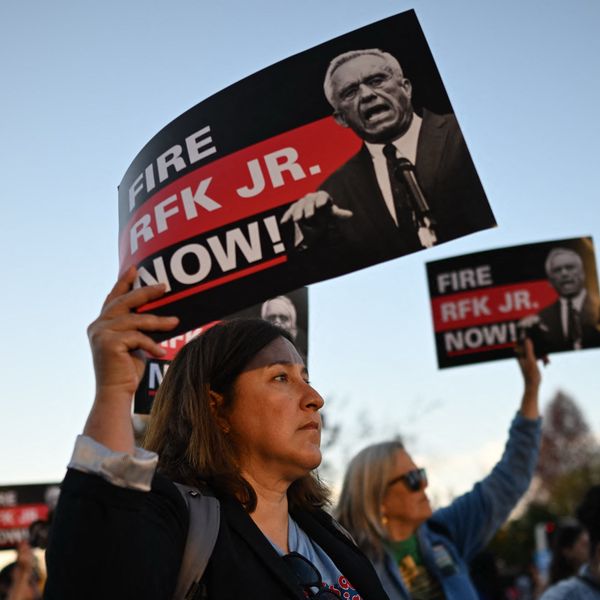The number of Ebola cases in Liberia and Sierra Leone could reach as many as 1.4 million by January, according to new estimates by the U.S. Centers for Disease Control and Prevention (CDC).
The agency describes the current outbreak of the virus sweeping West Africa as the largest Ebola outbreak in history. It has already infected over 5,800 people, with over 3,000 of them appearing in Liberia alone. Over 2800 deaths have occurred as a result of outbreak, as already weak public health systems have been strained amidst what health experts charge has been a "totally, and lethally, inadequate" international response.
Health workers and observers have stressed that the number of cases may be vastly under-reported.
The estimates revealed Tuesday by the CDC are based on a modeling tool to project hypothetical scenarios. It found that if additional interventions to stop the outbreak are not taken and communty practices like unsafe burials continue, Sierra Leone and Liberia could see between 550,000 and 1.4 million cases by January 20, 2015, with the higher figure accounting for under-reporting of the virus.
In a more optimistic scenario, which includes a higher percentage of infected people being treated in a proper health care facility and safe burial practices occurring by December, the modeling found that the epidemic in the country could be nearly stopped by the end of January.
Ending the epidemic there, the CDC found, requires getting 70 percent of affected persons to an Ebola-treating health care facility or community setting where the virus can be contained--a fact that puts into focus the as-of-yet inadequate worldwide response to step up to the needs of the epidemic.
In an article published Tuesday in the New England Journal of Medicine, Doctors Jeremy Farrar and Peter Piot write that the epidemic "was an avoidable crisis."
"We are concerned that without a massive increase in the response, way beyond what is being planned in scale and urgency, alongside the complementary deployment of novel interventions (in particular the use of safe and effective vaccines and therapeutics), it will prove impossible to bring this epidemic under control," they write.


